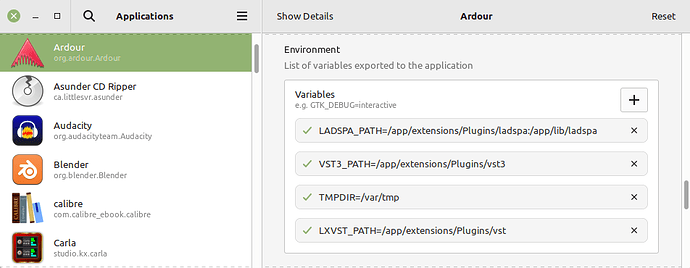Hello!
I know that Flatpak applications are supposed to be “sandboxed”, and people is against using Ardour in it.
However, I have found that it is possible to play with many (all?) the limitations of the sandboxing in Flatpak, using the FlatSeal application.
So I thought to give it a second chance.
Has anyone played with this?
Is there a reason, in principle, to avoid this route?
The first problem to address is of course the ability to “see” the plugins folder.
In FlatSeal I have noticed the (default) settings to “export the system PATH variables to the application”, and they include:
LADSPA_PATH
VST3_PATH
LXVST_PATH
(see screenshot)
However, the LV2_PATH is (crucially!) missing…
I have tryied to manually add this:
LV2_PATH=/usr/local/lib/lv2
or
LV2_PATH=/usr/lib/lv2
but after relaunch and rescan for plugins Ardour7 still cannot see the newly installed eq10q plugin.
Any ideas on how to deal with this?
Thanks in advance!
